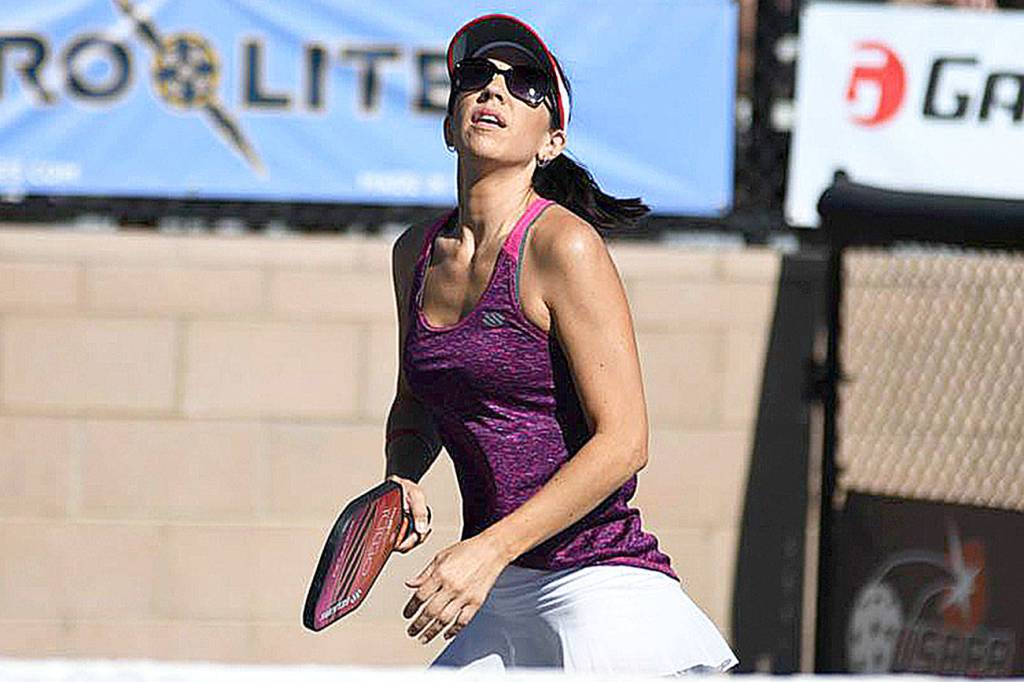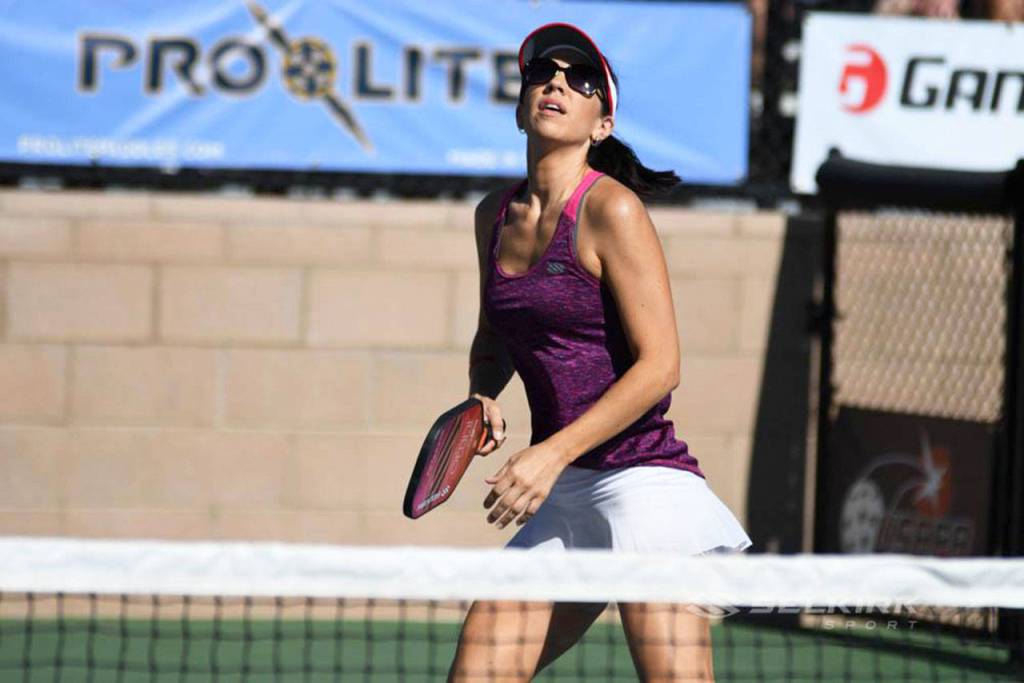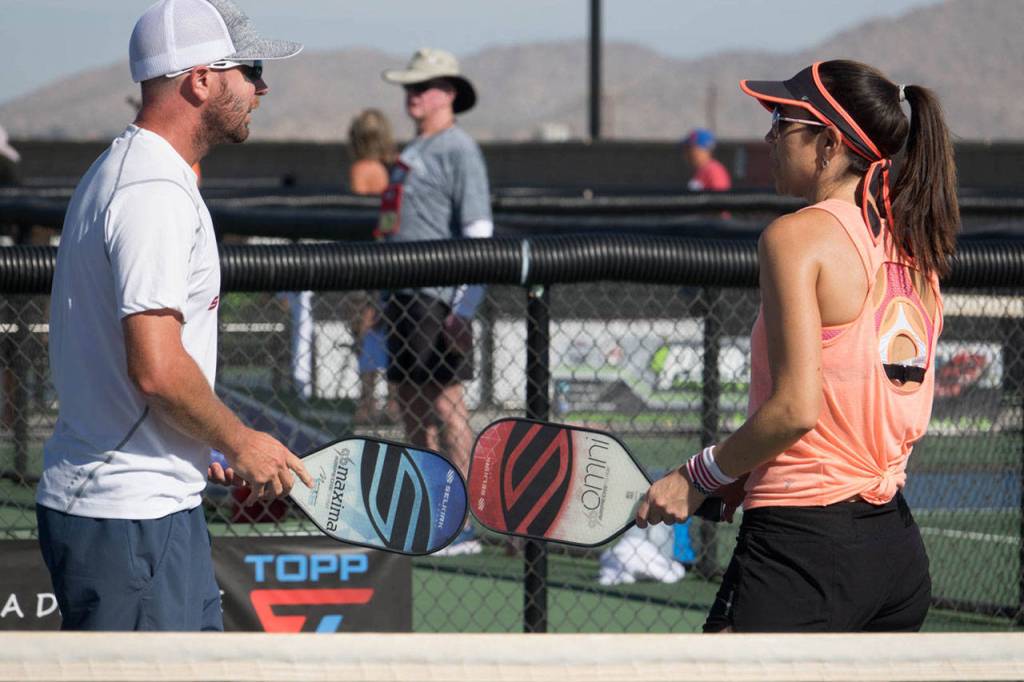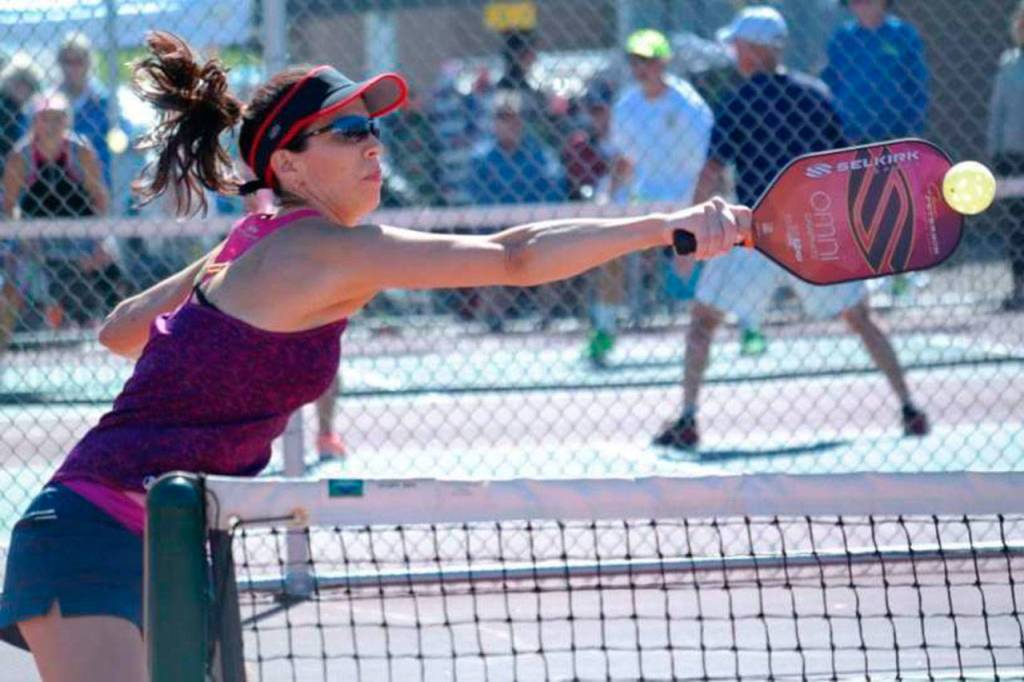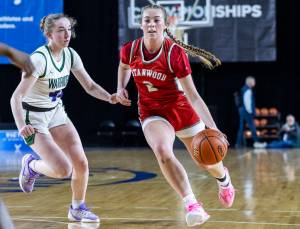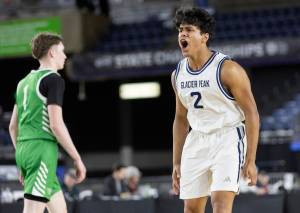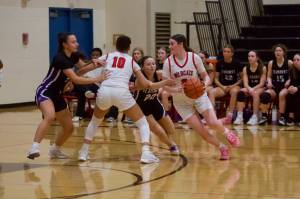Lynnwood woman is a passionate pickleball professional
Published 1:30 am Monday, July 9, 2018




Can you name a sport that’s played professionally across the country that was invented in the state of Washington?
Here’s a clue: It involves a court with a net that players hit the ball over in an attempt to get it past their opponents off the bounce to score points — and it’s not tennis.
Think dill.
Give up? It’s pickleball, and Snohomish County has an accomplished professional player in its own backyard.
Tonja Major, from Lynnwood, took home gold in the Mixed Doubles Pro Division and bronze in the Women’s Doubles Pro Division at the 2018 GAMMA Pickleball Classic held June 29 through July 1 in Pittsburgh.
“I feel like I could go on for hours about pickleball,” Major said of her love for the sport, “because it’s something I’m passionate about. It’s seriously the most addictive, fun sport.”
Her success in Pittsburgh is the most recent accomplishment in what has been a decorated doubles career for Major, whose resume includes first-place finishes in mixed doubles at the 2017 U.S. Open, and first-place finishes in women’s doubles at the 2016 International Indoor Championship, the 2014 Oregon State Games and the 2012 USA Pickleball Association (USAPA) Nationals.
Unlike most professional-level Pickleball players, Major isn’t a tennis player who decided to pick up the sport. In fact, she had no competitive tennis experience before her husband, Lavon Major, introduced her to the game before they were married.
Her love for pickleball took off from there.
She started competing in small local tournaments, and as the game continued to grow, so did her interest and her skill.
Major turned pro in 2011 and started competing regularly in events around the country.
How does one become a pro at pickleball? It’s not an exact science.
Major said there is no official process of turning professional. Players are considered pros when they compete at a certain level, namely medaling at large tournaments and holding their own against the game’s top players.
“You could be playing your first game ever and be doing well against a pro player,” Major said. “… There’s no official induction.”
As the sport has grown in popularity, so have the financial opportunities, including sponsorships.
Major picked up her first sponsor — Selkirk Sport, a maker of pickleball equipment — at the beginning of 2017.
“Once I found a paddle I liked, I said something, I think, to one of the players on the (Selkirk) team already,” Major said. “I was like, ‘Oh, I really like this paddle’ and they were just like, ‘You should talk to (the company). I’ll put in a good word and let them know you’ll be looking to join the team.’
“Then, Selkirk approached me.”
When Major isn’t competing in tournaments, she offers private individual and group lessons in the sport and works part-time for Pickleball Station in Kent. Second jobs are common among pro pickleball players, Major said, because most don’t make a living playing competitively.
“Once you can really get yourself out there and make a name for yourself, people want you to teach them,” Major said.
The game was invented on Bainbridge Island in 1965 by Washington congressman Joel Pritchard and friend Bill Bell. It’s played on a badminton-sized court with a whiffle ball and paddles that are similar to oversized pingpong paddles.
Serves must be delivered underhand and across the court diagonally with contact with the ball initiating at the waist level or below. Once the ball is served, the player receiving the serve must let the ball bounce once before hitting a return shot, then the serving player must do the same before both players are allowed to volley (hit the ball out of the air) — though volleys are not allowed within 7 feet of the net.
Points are scored only by the serving player or team, and games are normally played to 11, win by two. In tournaments, games frequently are played to 15 or 21 points, with the win-by-two rule in effect.
According to the USAPA website, the number of places to play the sport across the country has doubled since 2010.
But even more important than the growth of the sport to Major is the tight-knit community that surrounds pickleball.
“It’s almost like a healthy cult,” she said with a laugh.

